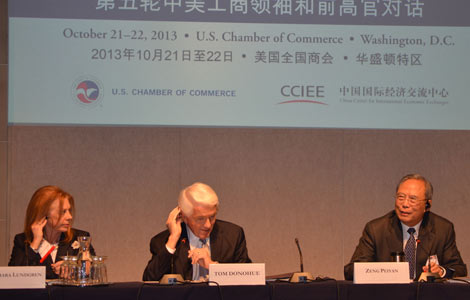Cases of scientific misconduct on the rise
Updated: 2013-10-24 00:49
By SHAN JUAN (China Daily)
|
||||||||
Scientific misconduct has grown in tandem with the great increase in government funding for science and technology in recent years, said Yang Wei, director of the National Natural Science Foundation of China.
The organization publicized six cases of scientific misconduct on its website in August, in an attempt to uphold scientific integrity and prevent similar scandals from recurring.
The unethical activities disclosed included forgery, distortion of facts and plagiarism, mainly in order to gain approval for research projects and funding, publishing academic articles in influential journals and promotion, according to a statement issued by the foundation.
"Unethical research misconduct is undermining the nation's general course of science and technology development and negatively affecting the environment for science research," Yang said.
From 2010 to June 30, 2013, the foundation's disciplinary supervision committee received 468 complaints related to scientific misconduct, 152 of which were filed by complainants using their real names.
In recent years, at least 80 cases of research misconduct have been uncovered by the foundation.
A survey conducted by the China Association for Science and Technology in 2009 found nearly half of 30,000 respondents from scientific research institutes, universities and medical institutions across the Chinese mainland said academic fraud and cheating was quite common.
Last year, three officials were removed from their posts after they approved and conducted a controversial test of genetically modified rice on school children in Hunan province without consent from the children's parents.
Yin Shi'an, one of the researchers involved in the case, was from the Chinese Center for Disease Control and Prevention.
Yang suggested laws and regulations be introduced to prevent, punish and deter research misconduct.
Equally important, "standards to define and identify misconduct are also needed", he said.
In late 2012, the Communist Party of China Central Committee and the State Council issued guidelines on deepening science and technological reform and promoting innovation. The guidelines call for tougher penalties on incidents of research misconduct.
The Ministry of Education issued a directive, effective on Jan 1, on how to deal with cheating in academic dissertations, targeting cheats and ghostwriters, as well as the mentors and institutions involved.
Chen Yiyu, who heads the supervision committee of the National Natural Science Foundation, said that enhancing scientific integrity is crucial to the sound development of the nation's science and technology in the long run.
"That requires coordination among all stakeholders, particularly at the State level, mainly to improve information sharing," he added.
To date, ministries and organizations such as the foundation and the ministries of science and technology, and education, have joined the effort to fight academic misconduct.

 Mass. teacher slain; 14-year-old student charged
Mass. teacher slain; 14-year-old student charged
 Driven by smiles
Driven by smiles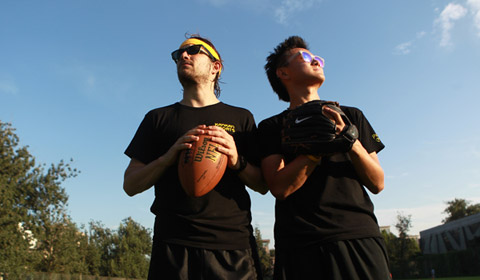
 Camp gives sporting chance for students headed overseas
Camp gives sporting chance for students headed overseas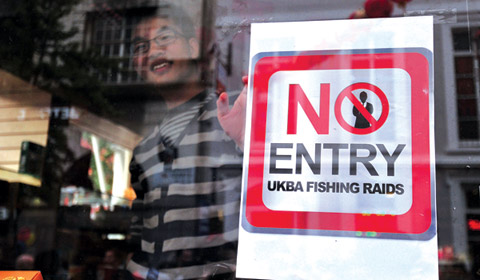
 Chinese protest UK 'fishing' raids
Chinese protest UK 'fishing' raids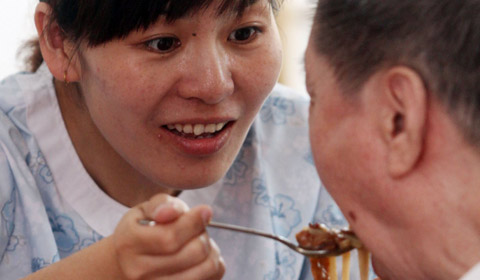
 Caretakers in need of counseling
Caretakers in need of counseling Pumpkin fun ahead of Halloween
Pumpkin fun ahead of Halloween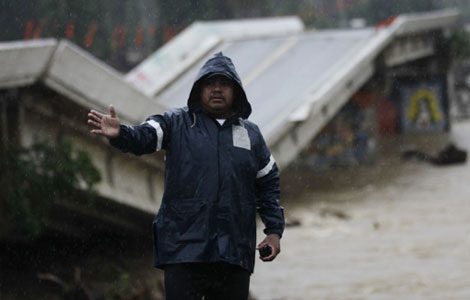
 Weakening Raymond soaks Mexico, no serious damage
Weakening Raymond soaks Mexico, no serious damage Apple unveils new Macs, iPad ahead of holidays
Apple unveils new Macs, iPad ahead of holidays
Most Viewed
Editor's Picks

|

|

|

|

|
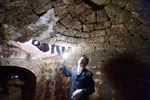
|
Today's Top News
Yale-China partners 100,000 Strong Foundation
China could help rebuild US infrastructure
Atlanta zoo’s cubs named Mei Lun and Mei Huan
Mobile giants talk future in Frisco
Starbucks' pricing furor: tempest in a coffee pot
US-China trade talks a 'turning point' in relations
US press not so free, experts say
China and India sign border pact
US Weekly

|

|
